Digital Book World‘s Jeremy Greenfield has just penned a very interesting and thought-provoking article over on Forbes. As the answer to the great “what is going to happen to Nook?” question, he advocates that Barnes & Noble should build out the Nook Press self-publishing operation, B&N’s answer to Kindle Direct Publishing, into a print book franchise. “Start selling self-published print books in Barnes & Noble stores,” he urges.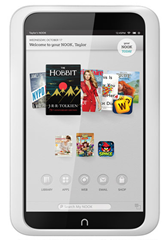
Arguing from the amount of shelf space that B&N already gives over to Nooks in its stores, Greenfield points out that: “the company owns Sterling Publishing, a New York-based publisher. On Nook’s dime, Sterling should add a print-only imprint for these titles, called something like Nook Print. This imprint will exist solely to bring these Nook-exclusive digital self-published titles to print and into stores.”
Is it practical? Would it achieve anything? Well, Greenfield argues partly from the purely gestural basis that “whatever Barnes & Noble is doing right now for Nook is failing miserably. Why not try something drastic?” But there are some more substantial arguments in favor of the idea. For one thing, if B&N wants to steal back a little of Amazon’s commanding self-publishing lead, this might give it a different value proposition instead. “For many authors, the ultimate reason to publish a book is to see it on the shelf of a local bookstore,” Greenfield continues. “I think that many self-published authors would give up the additional ebook sales with other platforms, most notably Amazon, to see their books in stores.”
There’s some truth in that, not least as print book sales (as opposed to large chain bookstores) are clearly not going away in the near future. Also, print-on-demand and similar low-volume printing methods, not to mention B&N’s top-down insights into its own distribution chains and stock levels, are likely to make this a relatively manageable proposition. Furthermore, B&N’s Nook sales outlets in other book chains worldwide could give immediate POS presence for its own titles. Also, if the program is applied to titles or authors that have already built up a sizeable following in ebook format, it will make demand levels far more predictable. And finally, it could square one circle for the book trade by giving print book publishing and bricks-and-mortar bookstores a direct means to capture the dynamism of self-publishing.
Will it happen? Do those merits hold up? Opinion invited, but I’d love to know how B&N especially rates this idea.


















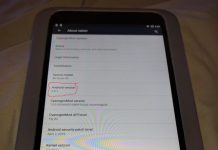

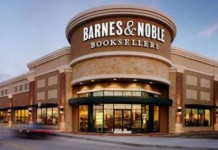
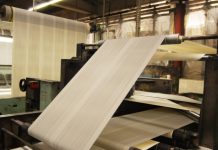
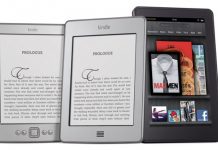










The basic concept of POD is really interesting to me as an author and viable if you can get the POD hardware cheap and reliable, but seeing as we are essentially talking about a high volume laser printer and perhaps hand-binding in the back room (if push comes to shove), this ought to be doable.
POD sales in B&N stores is a great add-on for authors and readers — see the book on the Nook website (IF you can find it somehow — they really need to fix the website before they do anything else), get it printed in minutes while you sip a coffee, and bring the physical home. That’s way cool (and something I have been lobbying for for years as a way to make bookstores viable against the Amazon behemoth:
(http://billsmithbooks.blogspot.com/2011/09/predictions-of-publishing-industry.html, see item 5).
However, Greenfield’s idea that authors would somehow give up Amazon Kindle sales for B&N store print access is beyond ridiculous.
Print sales are a nice becoming an add-on to ebook revenue for most self-published authors, a supplement, like foreign language rights.
I agree that POD might help B&N but I don’t see it being worth the expense if it’s only for self-published books. The trick would be to also get backlist books available through POD. Note that Amazon currently requires ebook exclusivity for Kindle Select status, but doesn’t care about print. I do think that the current business model for a bookstore is incredibly difficult. You have to guess which title the customer will want, and have it available or he’ll just buy it online, and you have to do that with a finite amount of shelf space for which you pay rent whether the books you have are selling or not.POD is too pricey for most indie stores, but B&N could afford to experiment, and they have the clout to get publishers to cooperate.